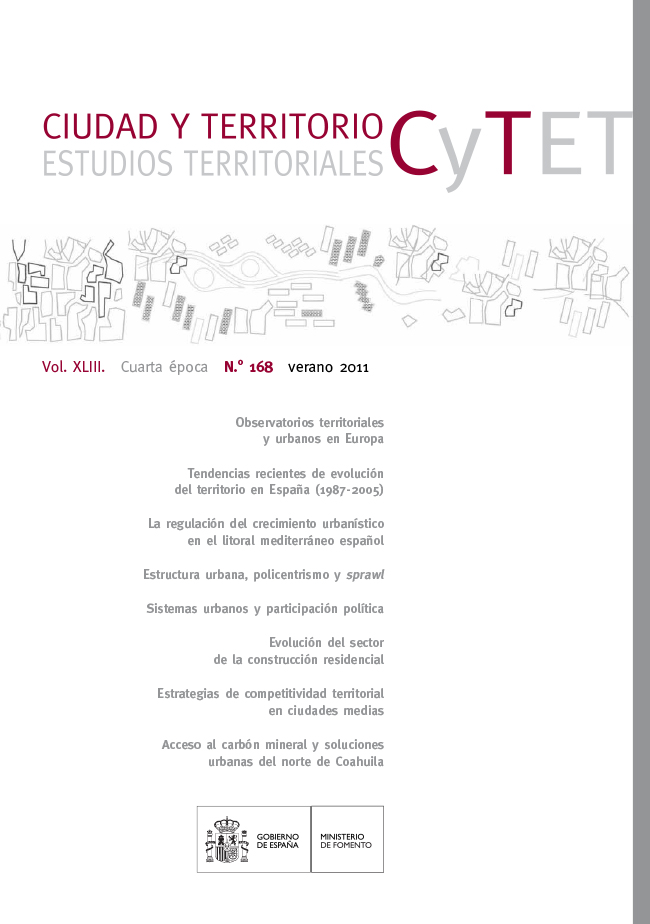Regional and Urban Observatories in Europe: Passive Entities or Fully Operating Active Planning Instruments?
Keywords:
Observatorio, planificación, desarrollo territorial, gobernanza, EuropaAbstract
As over the last 20 years an important number of spatial and urban observatories (OTU´s) have been
created in Europe in keeping with European spatial policy mandates and these are busily attempting to
offer a coherent image of the continent’s complex spatial reality, the paper considers them to be of special
interest for study from the perspective of different planning models and this at different spatial levels.
This paper is focused on analyzing the incidence of OTU´s on planning. To this purpose four incidence
levels were designed to classify the OTU´s and thus study their operative or passive role in the
planning process. This planning role is now here seen to run from a mere putting together of spatial
information through to a full involvement in the decision-making process.
Finally and in the light of the fi ndings thus obtained, a discussion is suggested as to the factors
conducive to a likely success in the setting up of this sort of observatories if these are indeed to
offer a genuine operative contribution to EU planning.
Downloads
Downloads
Published
How to Cite
Issue
Section
License
Copyright (c) 2011 Luis Miguel Valenzuela Montes, Julio Alberto Soria Lara

This work is licensed under a Creative Commons Attribution-NonCommercial-NoDerivatives 4.0 International License.
Considering the provisions of the current legislation on Intellectual Property, and in accordance with them, all authors publishing in CyTET give -in a non-exclusive way and without time limit- to the Ministry of Transport, Mobility and Urban Agenda the rights to disseminate, reproduce, communicate and distribute in any current or future format, on paper or electronic, the original or derived version of their work under a Creative Commons Attribution-NonCommercial-NoDerivative 4.0 license International (CC BY-NC-ND 4.0), as well as to include or assign to third parties the inclusion of its content in national and international indexes, repositories and databases, with reference and recognition in any case of its authorship.
In addition, when sending the work, the author(s) declares that it is an original work in which the sources that have been used are recognized, committing to respect the scientific evidence, to no longer modify the original data and to verify or refute its hypothesis. Author(s) also declare that the essential content of the work has not been previously published nor will it be published in any other publication while it is under evaluation by CyTET; and that it has not been simultaneously sent to another journal.
Authors must sign a Transfer of Rights Form, which will be sent to them from the CyTET Secretariat once the article is accepted for publication.
With the aim of promoting the dissemination of knowledge, CyTET joins the Open Journal Access (OA) movement and delivers all of its content to various national and international indexes, repositories and databases under this protocol; therefore, the submission of a work to be published in the journal presupposes the explicit acceptance by the author of this distribution method.
Authors are encouraged to reproduce and host their work published in CyTET in institutional repositories, web pages, etc. with the intention of contributing to the improvement of the transfer of knowledge and the citation of said works.








 Enlace a CyTET en Linkedin
Enlace a CyTET en Linkedin